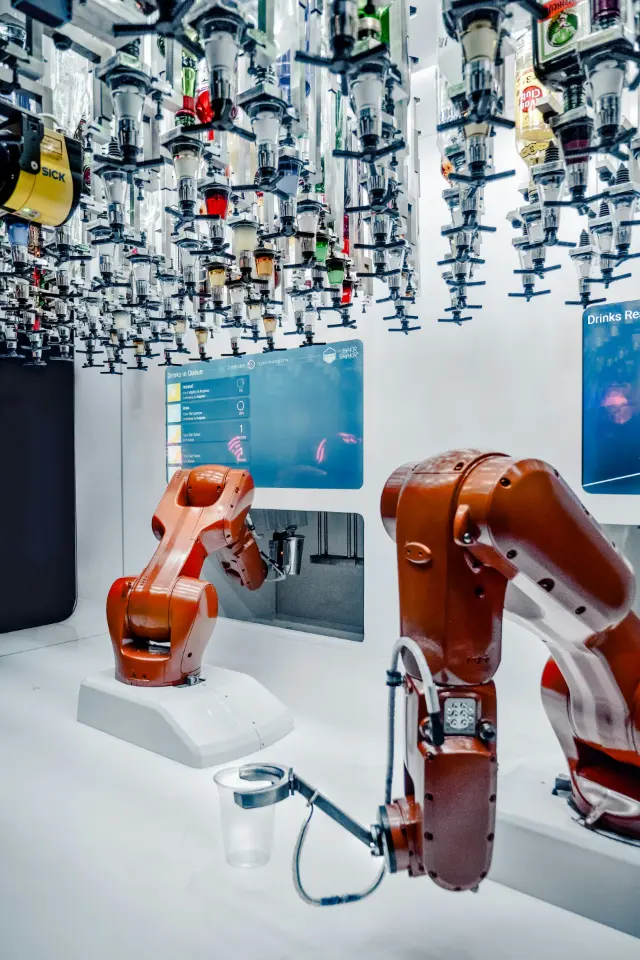Streamlining Legal and Contract Management in Hospitality: A Path to Efficiency and Accuracy
The hospitality industry is renowned for its complex legal and contractual landscape. From managing guest agreements to vendor contracts, legal teams face the daunting task of ensuring compliance, accuracy, and efficiency in their daily operations.
Traditionally, these processes have been manual and time-consuming, often leading to delays, errors, and missed deadlines. However, the advent of Legal and Contract Management Automation powered by Python, AI, and cloud-based solutions is revolutionizing the way hospitality businesses handle their legal affairs.
By embracing automation, hospitality organizations can:
- Enhance Efficiency: Automate repetitive tasks such as contract drafting, review, and approval, freeing up legal teams to focus on more strategic initiatives.
- Improve Accuracy: Eliminate human error and ensure consistency in contract language and compliance.
- Accelerate Processes: Streamline workflows and reduce turnaround times for contracts, enabling faster decision-making and improved agility.

Python, AI, and the Cloud: A Trio for Legal and Contract Management Automation
Python: The Foundation for Automation
Python is a versatile programming language that is ideally suited for developing Legal and Contract Management Automation solutions. Its simplicity, readability, and extensive library ecosystem make it easy to create robust and efficient automation scripts.
One key aspect of Python in this context is its ability to develop both unattended and attended bots:
- Unattended Bots: These bots can run autonomously, performing tasks such as contract drafting and review without human intervention. They are ideal for automating repetitive and time-consuming tasks.
- Attended Bots: These bots work in collaboration with human users, providing assistance and guidance throughout the contract management process. They offer a high level of customization and can be tailored to specific user needs.
The Cloud: A Powerful Orchestrator
Cloud platforms offer a comprehensive set of features and capabilities that make them ideal for orchestrating Legal and Contract Management Automation solutions. They provide:
- Scalability: Cloud platforms can easily scale up or down to meet changing demands, ensuring that automation processes can handle any workload.
- Reliability: Cloud platforms offer high levels of reliability and uptime, minimizing the risk of automation disruptions.
- Integration: Cloud platforms can seamlessly integrate with other business systems, such as document management systems and enterprise resource planning (ERP) systems, enabling end-to-end automation.
AI: Enhancing Accuracy and Handling Complexities
AI techniques, such as image recognition, natural language processing (NLP), and generative AI (Gen AI), can significantly enhance the accuracy and capabilities of Legal and Contract Management Automation solutions:
- Image Recognition: AI can analyze images of contracts and extract key data points, such as dates, signatures, and clauses.
- Natural Language Processing (NLP): AI can understand the natural language used in contracts and identify key concepts, obligations, and risks.
- Generative AI (Gen AI): AI can generate draft contracts based on predefined templates and specific requirements, saving legal teams time and effort.
By leveraging the power of Python, the cloud, and AI, hospitality businesses can achieve unprecedented levels of efficiency, accuracy, and compliance in their legal and contract management processes.

Building the Legal and Contract Management Automation
Step-by-Step Automation Development
1. Process Analysis:
- Identify the key subprocesses involved in legal and contract management, such as contract drafting, review, approval, and compliance checks.
- Break down each subprocess into individual tasks and activities.
2. Python Script Development:
- Use Python to develop scripts that automate each task identified in the process analysis.
- Leverage Python’s libraries for tasks such as data extraction, natural language processing, and contract generation.
3. Cloud Integration:
- Integrate the Python scripts with a cloud platform to provide scalability, reliability, and integration with other business systems.
- Use cloud services for data storage, workflow management, and monitoring.
Importance of Data Security and Compliance
In the hospitality industry, data security and compliance are paramount. Legal and Contract Management Automation solutions must adhere to strict regulations and protect sensitive information.
- Python and cloud platforms provide robust security features, such as data encryption, access controls, and audit trails.
- Automation can help ensure compliance by automating compliance checks and flagging potential risks.
Python vs. No-Code RPA Tools
While no-code RPA/workflow tools offer a low-code/no-code approach to automation, they have limitations compared to Python:
- Flexibility: Python is a general-purpose programming language that offers more flexibility and customization options.
- Scalability: Python-based automations can be easily scaled to handle large volumes of contracts and complex workflows.
- Integration: Python can seamlessly integrate with a wider range of business systems and cloud services.
Algorythum’s Approach
Algorythum takes a Python-based approach to Legal and Contract Management Automation because we understand the limitations of off-the-shelf RPA platforms. Our approach provides:
- Tailor-made Solutions: We develop custom automation solutions that are tailored to the specific needs of our hospitality clients.
- Proven Performance: Our Python-based automations have consistently delivered significant improvements in efficiency, accuracy, and compliance for our clients.
- Future-Proofing: Python is a constantly evolving language with a large and active community. This ensures that our automations will remain relevant and effective in the long run.

The Future of Legal and Contract Management Automation
The possibilities for extending and enhancing Legal and Contract Management Automation solutions are endless. As technology continues to evolve, we can expect to see even more innovative and powerful applications of automation in the hospitality industry.
Here are a few potential future directions:
- AI-Powered Contract Analysis: AI can be used to analyze contracts for specific clauses, obligations, and risks. This can help legal teams identify potential issues early on and make more informed decisions.
- Blockchain for Secure Contract Management: Blockchain technology can be used to create secure and tamper-proof records of contracts. This can provide added peace of mind and reduce the risk of fraud.
- Smart Contracts: Smart contracts are self-executing contracts that can be stored on a blockchain. This can automate the performance of contractual obligations, reducing the need for manual intervention.
Join the Automation Revolution
If you’re looking to streamline your legal and contract management processes, Algorythum can help. Our team of experts can develop a custom Legal and Contract Management Automation solution that meets your specific needs.
Subscribe to our newsletter to stay up-to-date on the latest automation trends and industry-specific solutions. Contact us today for a free feasibility assessment and cost estimate. Let us help you unlock the power of automation and transform your legal and contract management operations.

Algorythum – Your Partner in Automations and Beyond
At Algorythum, we specialize in crafting custom RPA solutions with Python, specifically tailored to your industry. We break free from the limitations of off-the-shelf tools, offering:
- A team of Automation & DevSecOps Experts: Deeply experienced in building scalable and efficient automation solutions for various businesses in all industries.
- Reduced Automation Maintenance Costs: Our code is clear, maintainable, and minimizes future upkeep expenses (up to 90% reduction compared to platforms).
- Future-Proof Solutions: You own the code, ensuring flexibility and adaptability as your processes and regulations evolve.









